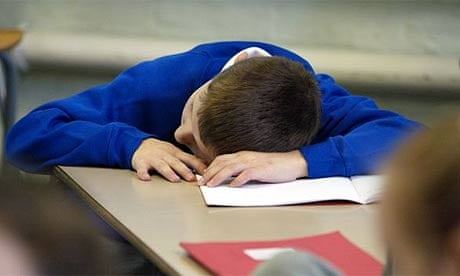Teachers in Scotland are to toughen up their "mollycoddled middle-class" pupils with classes on how to cope with disappointment and failure, it emerged today.
At least 100 primary and secondary schools in Scotland plan to teach a course called Bounce Back from September.
Pupils will be taught ways to accept and solve their problems themselves, rather than turn to their teachers and parents.
The course advises teachers to emphasise how characters in stories combat adversity.
Dr Toni Noble, a senior education lecturer at the Australian Catholic University and co-author of the course's textbook, said: "We can't protect young people from the stress of all potential adverse life events, but we as educators can make a significant contribution to their welfare and life-long learning by teaching them coping skills."
The Glasgow-based Centre for Confidence and Wellbeing has helped schools find out about the course by inviting Noble to speak to teachers.
Carol Craig, the centre's chief executive, said: "Schools are having to teach some of these skills to children because parents aren't. We think that young people's lack of resilience is a big issue at the moment. Until parents understand this, schools will have to do something about it."
She said over the last 20 years, children had become less independent and had had more responsibility taken away from them.
"This is most acute in middle-class areas, although it is happening elsewhere as well," she said.
Parents contact teachers if their children fail tests, are left out of the school pantomime or fall out with friends, she said. Instead children should learn to take life's hard knocks.
"Years ago parents would get the kids to sort these things out themselves," she said. Now parents mollycoddle children into their late teens.
"When young people go to university open days, it is often the case they bring their parents, and get them to do a lot of the talking," she said. "But when my mother was 14 she was already working in a laundry and was an independent woman. The change has been massive."
Sandy MacLean, an adviser at the Scottish Further Education Unit, said: "Young people are not fragile, they can be likened to springs or balls. People can bounce back psychologically after being knocked out of shape, just like in nature.
"People are frightened of negative emotion. This encourages them to try and suppress their emotions. Research shows this causes more of the negative sensations they didn't want."
